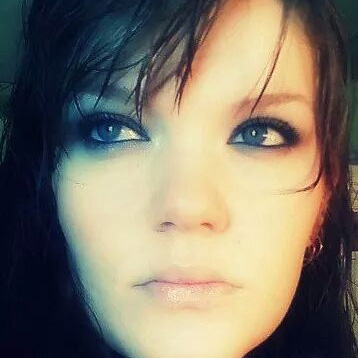I spent the five happiest years of my life in a morgue. As a forensic scientist in the Cleveland coroner’s office I analyzed gunshot residue on hands and clothing, hairs, fibers, paint, glass, DNA, blood and many other forms of trace evidence, as well as crime scenes. Now I'm a certified latent print examiner and CSI for a police department in Florida. I also write a series of forensic suspense novels, turning the day job into fiction. My books have been translated into six languages.
Just as a guess, it seems to me that molecular biology and sociology are pretty far apart, career-wise. With molecular biology I would expect you to go into DNA or some other kind of specialized analysis--which would be fabulous, but I doubt that you would also be doing crime scenes. My question is, would you like to work mostly in a lab or mostly at crime scenes? If mostly in a lab, then I think you are on the right track. The best way to know is to contact places you would like to work and ask them what their requirements are. Go for a tour if you can. This is also a great way to network and meet people. But most importantly, every agency will have different preferences based on their functions and positions. Best of luck!!
I couldn't tell you the exact chemistry, but it reacts with the iron present in hemoglobin to indicate blood. However it also reacts with other oxidizing agents such as copper and horseradish. Unlike what you see on TV, we don't spray luminol and then use a UV light or some such thing. We make the room as dark as possible, spending a lot of time taping material over windows and door cracks and 'ready' lights, then spray the luminol.or Bluestar. It will glow on its own without any additional equipment, and won't last long. It can be photographed but that's a bit of work. It won't stain or harm anything.
No, because simply from a news article you have no idea of everything that is going on. The officers might not be (should not be) telling reporters everything they know, in order to weed out truthful and untruthful witnesses. They're also not going to tell reporters (and if they did the reporters wouldn't write it) every last little boring tedious detail of everything they do. And information often gets garbled in translation, from crime scene to cops, from cops to the information officer, from the info officer to the press release, from the press release to the news article, from the neighbor looking over their fence and then talking to the reporter. That's just human.
Lots of time the story I get from Dispatch when they first call me turns out to be a totally different thing when I get there.
If you're working with the bodies then you'd probably be a medicolegal death investigator. You might want to check out their organization: http://www.abmdi.org/And this page: http://www.abmdi.org/faqBest of luck!
Dating Website Employee
 How does a dating site get its first 10,000 customers?
How does a dating site get its first 10,000 customers?
Inner City English Teacher
 What was the saddest student journal entry you've read?
What was the saddest student journal entry you've read?
Certified Nurse Aide
 Have you ever seen any 'senior abuse' in your nursing home?
Have you ever seen any 'senior abuse' in your nursing home?
No. A .357 can shoot .38 bullets (not vice versa, or the gun will blow up) but 9mm can't shoot 38 bullets because they're shaped a little differently. It's confusing because what we call .38 caliber are actually .357, and 9mm is actually .380--in size, but a 9mm gun cannot shoot .380 bullets. You would have to read the forensic report carefully and maybe ask for clarification. I've never worked in ballistics, so perhaps there's a chance that the report is saying that the projectile had a .380 diameter, not that it was a .380 bullet, in which case it could have come from a 9mm gun?
Oh yes, I'm extremely smart. Just kidding! No, you don't have to be some kind of friggin' genius like you see on TV. You just have to be reasonably intelligent, reasonably sensible, reasonably observant, and have a good amount of attention to detail, respect for rules, and patience. It also helps to be pleasant and able to get along with people. Even though most of our victims are dead, the families, witnesses, cops and detectives are very much alive and under a lot of stress.
Every agency--police departments, M.E. offices, state police--has their own rules and requirements. The best thing to do is check the websites or contact the agencies where you'd like to work and ask them.
-OR-
 Login with Facebook
Login with Facebook (max 20 characters - letters, numbers, and underscores only. Note that your username is private, and you have the option to choose an alias when asking questions or hosting a Q&A.)
(A valid e-mail address is required. Your e-mail will not be shared with anyone.)
(min 5 characters)
By checking this box, you acknowledge that you have read and agree to Jobstr.com’s Terms and Privacy Policy.
-OR-
 Register with Facebook
Register with Facebook(Don't worry: you'll be able to choose an alias when asking questions or hosting a Q&A.)